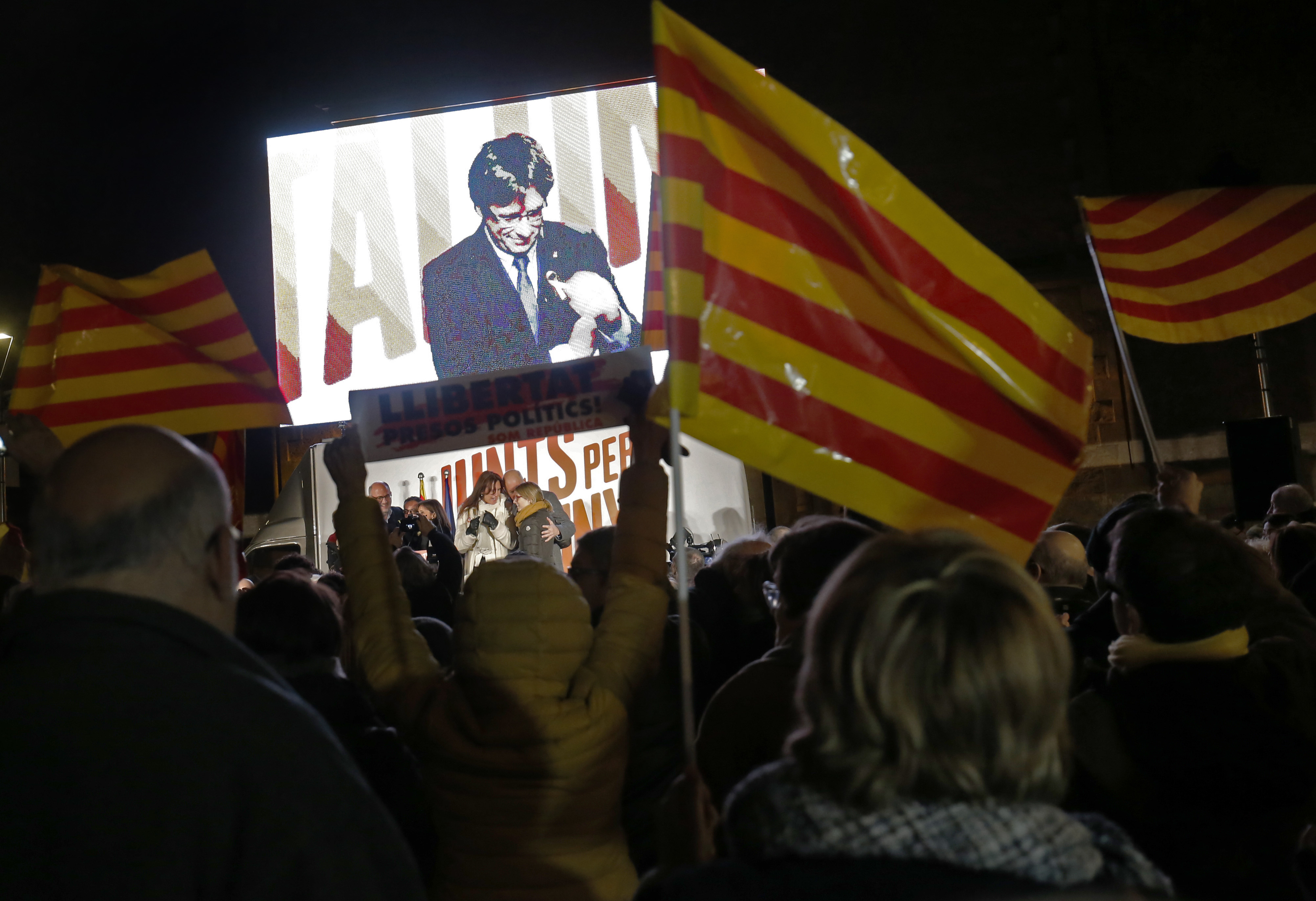Indipendentists and unionists
Elections in Catalonia, exceptionally convened by Spanish premier Mariano Rajoy after the declaration of independence approved by the outgoing Catalan parliament majority, will take place tomorrow. The election campaign was a unique event in Europe’s recent history given that one of the three main candidates is in preventive detention and another one is in “exile” in Brussels. Unionists and separatists tied neck and neck, according to the polls. The “undecided” voters will be crucial

The circumstances that prefigured the climate prior to the election of the Catalan Parliament, Thursday, December 21 (working day and ahead of Christmas), are difficult to define. It had never happened in forty years of democracy in Spain. After the events of the first of October, with the attempt to hold a referendum resting on a “universal census” (vote where you can) to ask the Catalans if they wanted independence from Spain, with police intervention to prevent it (images that circulated worldwide, some of them false), ushered in a declaration of independence, the suspension of the government and of the autonomous parliament by virtue of Article 155 of the Spanish Constitution, never applied before, along with the decision to hold elections as soon as possible. An exchange of statements and requests between the central and regional governments, lying in-between the two cornerstones of this peculiar development, will be passed down to juridical literature scholars.
The impact of the “referendum”. Things have quieted down since then, but at a high social and economic price. On the one hand, the wounds inflicted on many families, both in Catalonia and in the rest of Spain, will take some time to heal. Moreover, a sharp decline was registered in Catalan economy over the past two months, largely due to the climate of uncertainty caused by the political situation. A clear example of this are the over three thousand companies that decided to move their head offices to other parts of the Country, while registered unemployment rose sharply and tourism declined.

An unprecedented election campaign. That’s why it’s necessary to complete the formation of a new Generalitat (parliament) in Catalonia “as soon as possible”, even though the circumstances are utterly irregular and feature cinematic scenarios. When had a presidential candidate ever been seen campaigning online from Brussels, like the suspended Puigdemont? (By paradox, he claims to be the legitimate president of the Republic of Catalonia and, at the same time, he runs in the elections he considers illegitimate). When did it ever happen that a prisoner ran as candidate in an election (Oriol Junqueras, former vice-President of the Generalitat)? And then, the strange legal maneuvers and the heated debates between judges of different bodies to define the situation of arrested politicians, not because of their ideas (even Amnesty did not recognize them as political prisoners), but on charges of sedition and rebellion.
The polls and undecided voters. Against this awkward backdrop took place an election campaign whose opinion polls show a tie between pro-independence and unionists forces. Also in this case, as in recent elections (US, France, The Netherlands), there are suspicious attempts at manipulating undecided voters online.
The difficult position of the Church. The Church – or rather, a number of priests siding with pro-independence stands – was the object of much criticism. The bishops have been and remain very discreet in terms of Catholic citizens’ commitment in public life. An example of this tactful approach is found in Monsignor Joan-Enric Vives, archbishop of Urgell, who published on the diocesan website an “invitation” to “participate for the good of the Country” (it is yet to be known whether “Country” should be understood in the strict sense of the term, i.e. Catalonia, or in a broader sense, i.e. Spain; it depends on the reader). Mindful of “the present extraordinary circumstances” in which the elections are being held, bishop Vives pointed out that it is a question of “entrusting the good governance of the Country to lawmakers and leaders tasked with establishing and promoting (…) political, social and economic conditions that may further human development (…) seeking social peace: an essential element of the common good.” How should we interpret these words? Naturally, he cannot take sides, and he makes everyone happy. “Many are expecting that the chosen Parliament and the government that will ensue will recover the path of a new, respectful form of cooperation between the government of the State and the government of the Generalitat, to restore mutual understanding, ensure the common good of all citizens and guarantee the respect of the legitimately recognized institutions of self-governance, without humiliations”, he added. Thus the unionists will read that the archbishop agrees with the decision of the central government of holding the elections, and pro-independence readers will be happy that he acknowledge the humiliation undergone by Catalan institutions.
(*) Editor-in-chief, Ciudad Nueva (Spain)